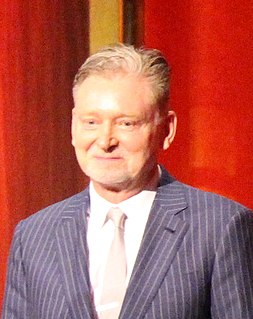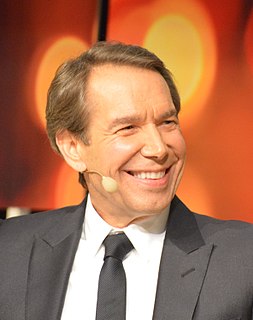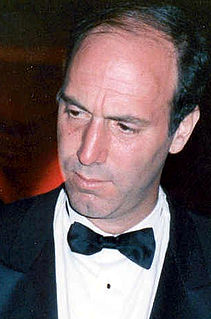A Quote by Scott Derrickson
I'm not standing above the audience trying to manipulate them as a puppet master or a trickster; I'm inside the story I'm writing and making and thinking about things very seriously and feeling very deeply at times, and trying to translate that into a narrative.
Related Quotes
You're in a movie, so you have to think about how something plays. It's not like you're thinking about how an audience is going to react. You're trying to present the story. You're trying to illuminate the lives of these people in the story. So I'm thinking about how my behavior as this character best illuminates what's going on with them in this moment in time. I always say it's sort of the director's job. People think that the directors direct actors. No. Really, what the director's doing is directing the audience's eye through the film.
[People] are trying to - they're trying to create something that solves a series of very complex problems inside of them or in their history. And I think when I unknowingly - when I went to do that, that's what I was - I was trying to integrate all of these very difficult things that I'd been unable to integrate in my life and in my life with my parents.
When you're still in the broadcast business, you're still trying to reach tens of millions. You're trying to still aim for a broader audience, and I think that's a more difficult task to spread yourself across that audience, connect with them, as opposed to a very, very small, pinpointed audience. Difficult to do.
When I pick a story, I'm very much aware of the larger issues that it's illuminating. But one of the things that I, as a writer, feel strongly about is that nobody is representative. That's just narrative nonsense. People may be part of a larger story or structure or institution, but they're still people. Making them representative loses sight of that. Which is why a lot of writing about low-income people makes them into saints, perfect in their suffering.
There are three stories that are foundational to the Islamic narrative in which women, and in two of the three cases, single women, are not just part of the story. They're at the very center of the story. Yet, that is not something that you would imagine to be true if you survey the Muslim world from the outside or from the inside. Part of the reason is that we don't really take our text seriously. We don't take our stories seriously. We're almost afraid of thinking complicated thoughts.
Meditation is about seeing clearly the body that we have, the mind that we have, the domestic situation that we have, the job that we have, and the people who are in our lives. It's about seeing how we react to all these things. It's seeing our emotions and thoughts just as they are right now, in this very moment, in this very room, on this very seat. It's about not trying to make them go away, not trying to become better than we are, but just seeing clearly with precision and gentleness.
I wasn't very good as a puppet. A lot of times in a movie, you need a really good puppeteer: you're sort of a puppet, and you're doing what you can. But I always, from the beginning, was kind of making up my own stuff from stand-up and sort of directing myself, so I wasn't very good in movies where I didn't have control.
I'm speaking to someone I'm trying to get to fall in love with me. I'm trying to speak intimately to one person. That should be clear. I'm not speaking to an audience. I'm not writing for the podium. I'm just writing, trying to write in a fairly quiet tone to one other reader who is by herself, or himself, and I'm trying to interrupt some silence in their life, which is utterance.






































